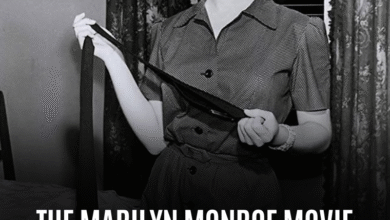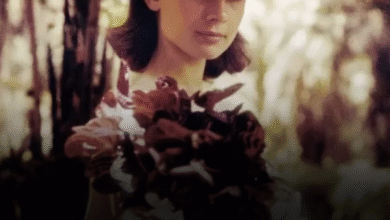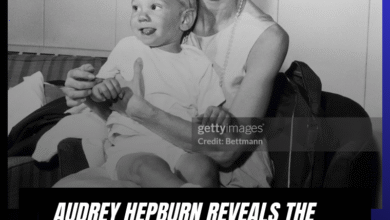Family Ties in Horror: How Lily-Rose Depp Carries On Johnny Depp’s Genre Legacy in Dark, Supernatural Roles
OPINION: This article may contain commentary which reflects the author's opinion.
Lily-Rose Depp, the daughter of actors Johnny Depp and Vanessa Paradis, has made a significant mark in the horror genre, a striking parallel to her father’s early work in fantasy films. While their careers span different genres, the thematic and stylistic echoes between Lily-Rose’s horror roles and Johnny’s early fantasy films reveal a family legacy steeped in gothic, atmospheric storytelling. As of 2025, Lily-Rose’s performances, particularly in Nosferatu (2024) and Silent Night (2021), echo the work of her father, especially his iconic roles in Edward Scissorhands (1990) and Sleepy Hollow (1999).
Lily-Rose Depp’s Horror Filmography
Lily-Rose Depp’s career began with a minor role in Tusk (2014), but it wasn’t until her roles in Silent Night (2021) and Nosferatu (2024) that she truly embraced the horror genre. In Silent Night, she played Sophie, a young woman in a dystopian future who commits suicide in a society ravaged by climate change, blending dark humor and horror to create a chilling narrative. Directed by Camille Griffin, the film was noted for its grim exploration of societal collapse and individual despair, with Depp’s performance receiving praise for its emotional depth.
However, it was her role in Nosferatu—a gothic horror remake directed by Robert Eggers—that truly marked a turning point in her career. Playing Ellen, a young woman haunted by the vampire Count Orlok (Bill Skarsgård), Depp’s performance was hailed by critics as “raw and powerful,” with The Hollywood Reporter highlighting her ability to convey both fear and sexuality in a captivating way. Depp’s portrayal resonated with audiences, paralleling the fragile, tortured characters seen in her father’s earlier works, particularly in films where isolation and fear were central themes.
Johnny Depp’s Early Fantasy Films
Johnny Depp’s career in the 1990s helped establish him as an icon of genre filmmaking, particularly in the realms of fantasy and gothic horror. His breakout role as Edward in Edward Scissorhands (1990), directed by Tim Burton, showcased his ability to portray a misunderstood, isolated character in a fantastical, fairy-tale horror setting. The film’s gothic aesthetic, with its suburban gothic setting, laid the groundwork for Depp’s affinity with fantastical roles, where outcasts and outsiders took center stage.
Another significant film in Depp’s early career was Sleepy Hollow (1999), where he portrayed Ichabod Crane, a young investigator tasked with solving supernatural murders committed by the Headless Horseman. Like Edward Scissorhands, Sleepy Hollow blended gothic fantasy with horror, creating a world steeped in mystery and the supernatural. Depp’s performance as a sensitive, troubled detective mirrored the same fragility and isolation seen in his earlier roles, making him a fitting figure for the genre.
Thematic and Stylistic Echoes
The thematic connections between Lily-Rose Depp’s recent horror roles and Johnny Depp’s early fantasy films are striking. Both actors portray characters who navigate dark, fantastical worlds filled with supernatural elements, often dealing with themes of isolation, pain, and personal struggle.
In Nosferatu, Lily-Rose’s character Ellen is drawn into a haunted existence, paralleling Johnny Depp’s portrayal of Edward, a lonely and misunderstood character thrust into a world that doesn’t understand him. Both characters struggle with their identities and grapple with the presence of supernatural forces in their lives. Similarly, Depp’s Sleepy Hollow character, Ichabod Crane, who investigates a series of supernatural murders, echoes the investigative and eerie elements seen in Lily-Rose’s roles, particularly her character’s obsession with the paranormal in Nosferatu.
Lily-Rose’s work in Silent Night, though a horror comedy, also shares a dark tone with Johnny Depp’s films. In both, the central characters deal with grim, otherworldly settings where personal despair and existential questions arise. While Silent Night is more comedic in nature, the underlying tragedy of Sophie’s suicide and the societal collapse mirrors the dark, fantastical settings of Depp’s earlier films.
Personal Reflections and Legacy
Lily-Rose Depp’s deep connection to her father’s genre work is further emphasized by her personal reflections on his film Edward Scissorhands. In interviews, she has admitted that watching the film as a child left a lasting impression on her—not because of Johnny Depp’s portrayal of Edward, but due to the way others treated him. This emotional reaction suggests that Lily-Rose’s own career in the horror and fantasy genres may be partially influenced by her early exposure to such themes. It’s a fascinating glimpse into how family dynamics and shared experiences can shape an actor’s path, especially in a family where genre filmmaking has been such an influential part of both parents’ careers.
A Shared Family Legacy
As Lily-Rose Depp continues to carve her niche in the horror genre, it’s clear that her career is deeply intertwined with the legacy of her father, Johnny Depp, in genre filmmaking. Johnny’s early roles in gothic fantasy films like Edward Scissorhands and Sleepy Hollow established him as an iconic figure in the genre, and Lily-Rose’s work in films like Nosferatu and Silent Night suggests that she is continuing this legacy with her own distinct style.
Critics and fans alike have noted the parallels between their performances, particularly in how they embody characters caught in dark, fantastical worlds. As Lily-Rose’s career continues to evolve, it’s likely that the legacy of her father’s genre-defining roles will remain a guiding influence, both in the roles she chooses and in the unique flavor she brings to the genre.
From Johnny Depp’s iconic performances as an outcast in fantastical settings to Lily-Rose’s growing body of work in horror and the supernatural, it’s clear that the Depp family’s connection to genre filmmaking is not just a career choice—it’s a legacy that will continue to influence the genre for years to come.



